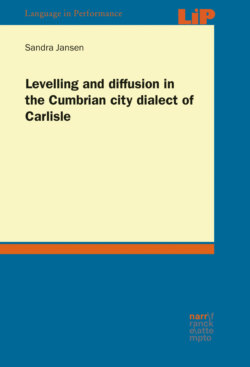Читать книгу Levelling and diffusion in the Cumbrian city dialect of Carlisle - Sandra Jansen - Страница 10
На сайте Литреса книга снята с продажи.
2.2 Regional identity
ОглавлениеAbove, geolinguistic processes that potentially lead to language change as set out by Trudgill (1986) have been discussed. The section on accommodation clearly shows that these processes must have their beginning at the individual speaker level. However, on the macro level the discussion on diffusion is not complete without considering the social motivation within a community for change triggered by identity constructions. Torgersen and Kerswill (2004: 25-6) emphasise that internal and external as well as extra-linguistic factors have to be taken into account for the analysis of changes within a community that are observed across a larger geographical area. These extra-linguistic factors lead to “locally specific outcomes” (Watts 2005: 26). For Britain (2010b), these extra-linguistic factors are part of the spatial practice of the community. Nevertheless, they all agree that factors which lie outside of the linguistic system of a community can and do influence linguistic choices. It is important in which (physical and emotional) direction people orient themselves as a community. This extra-linguistic behaviour should be taken into when investigating the linguistic behaviour of speaker groups. However, spatial practice is often only partially responsible for variation and change processes.
In particular in the north of England, several studies have shown that the attitude of speakers can have an influence on linguistic change (cf. Watt 2002; Burbano-Elizondo 2006; Llamas 2007). Britain (2010b: 203) calls for attention to the social practice of the speakers. Positive and negative associations with other regions can have linguistic repercussions, e.g. Llamas (2007) sketches the historical development of the city of Middlesbrough with various cases of geographical reorganisation which is reflected in political, social and perceptual views of the speakers. Nevertheless, these social practices have repercussions on the linguistic choices of the speakers, repercussions which sociolinguistic studies are trying to detect.
